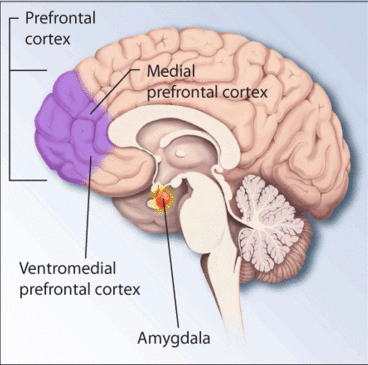|
Betrayal
Betrayal is the breaking or violation of a presumptive contract, trust, or confidence that produces moral and psychological conflict within a relationship amongst individuals, between organizations or between individuals and organizations. Often betrayal is the act of supporting a rival group, or it is a complete break from previously decided upon or presumed norms by one party from the others. Someone who betrays others is commonly known as a traitor or betrayer. Betrayal is a commonly used story element in fiction, sometimes used as a plot twist. Definition Philosophers Judith Shklar and Peter Johnson, authors of ''The Ambiguities of Betrayal'' and ''Frames of Deceit'', respectively, contend that while no clear definition of betrayal is available, betrayal is more effectively understood through literature. Theoretical and practical needs Rodger L. Jackson explains why a clear definition is needed: Betrayal is both a "people" problem and a philosopher's problem. Philoso ... [...More Info...] [...Related Items...] OR: [Wikipedia] [Google] [Baidu] |
Trust (emotion)
Trust is the belief that another person will do what is expected. It brings with it a willingness for one party (the trustor) to become vulnerable to another party (the trustee), on the presumption that the trustee will act in ways that benefit the trustor. In addition, the trustor does not have control over the actions of the trustee. Scholars distinguish between generalized trust (also known as social trust), which is the extension of trust to a relatively large circle of unfamiliar others, and particularized trust, which is contingent on a specific situation or a specific relationship. As the trustor is uncertain about the outcome of the trustee's actions, the trustor can only develop and evaluate expectations. Such expectations are formed with a view to the motivations of the trustee, dependent on their characteristics, the situation, and their interaction. The uncertainty stems from the risk of failure or harm to the trustor if the trustee does not behave as desired. In t ... [...More Info...] [...Related Items...] OR: [Wikipedia] [Google] [Baidu] |
Treason
Treason is the crime of attacking a state (polity), state authority to which one owes allegiance. This typically includes acts such as participating in a war against one's native country, attempting to Coup d'état, overthrow its government, spying on its military, its diplomats, its officials, or its secret services for a hostile foreign power, or Regicide, attempting to kill its head of state. A person who commits treason is known in law as a traitor. Historically, in common law countries, treason also covered the murder of specific social superiors, such as the murder of a husband by his wife or that of a master by his servant. Treason (i.e., disloyalty) against one's monarch was known as ''high treason'' and treason against a lesser superior was ''petty treason''. As jurisdictions around the world abolished petty treason, "treason" came to refer to what was historically known as high treason. At times, the term ''traitor'' has been used as a political epithet, regardless of ... [...More Info...] [...Related Items...] OR: [Wikipedia] [Google] [Baidu] |
Judith Shklar
Judith Nisse Shklar (September 24, 1928 – September 17, 1992) was a philosopher and political theorist who studied the history of political thought, notably that of the Enlightenment period. She was appointed the John Cowles Professor of Government at Harvard University in 1980. Biography Judith Shklar was born as Judita Nisse () in Riga, Latvia, to Jewish Latvian parents. Because of persecution during World War II, her family fled Europe via Japan to the US and finally to Canada in 1941, when she was thirteen. She began her studies at McGill University at the age of 16, receiving bachelor of arts and master of arts degrees in 1949 and 1950, respectively. She later recalled that the entrance rules to McGill at the time required 750 points for Jews and 600 for everyone else.Judith N. Shklar, "A Life of Learning," ACLS Occasional Paper, no. 9, 1989, at https://publications.acls.org/OP/Haskins_1989_JudithNShklar.pdf . She took her PhD degree from Harvard University in 1955. Her me ... [...More Info...] [...Related Items...] OR: [Wikipedia] [Google] [Baidu] |
Jonathan Wild
Jonathan Wild, also spelled Wilde (1682 or 1683 – 24 May 1725), was an English thief-taker and a major figure in London's criminal underworld, notable for operating on both sides of the law, posing as a public-spirited vigilante entitled the "Thief-Taker General". He simultaneously ran a significant criminal empire, and used his crimefighting role to remove rivals and launder the proceeds of his own crimes. Wild exploited a strong public demand for action during a major 18th-century crime wave in the absence of any effective police force in London. As a powerful gang-leader himself, he became a master manipulator of legal systems, collecting the rewards offered for valuables which he had stolen himself, bribing prison guards to release his colleagues, and blackmailing any who crossed him. Wild was consulted on crime by the government due to his apparently remarkable prowess in locating stolen items and those who had stolen them. Wild was responsible for the arrest and e ... [...More Info...] [...Related Items...] OR: [Wikipedia] [Google] [Baidu] |
Amnesia
Amnesia is a deficit in memory caused by brain damage or brain diseases,Gazzaniga, M., Ivry, R., & Mangun, G. (2009) Cognitive Neuroscience: The biology of the mind. New York: W.W. Norton & Company. but it can also be temporarily caused by the use of various sedative and hypnotic drugs. The memory can be either wholly or partially lost due to the extent of damage that is caused. There are two main types of amnesia: * Retrograde amnesia is the inability to remember information that was acquired before a particular date, usually the date of an accident or operation. In some cases, the memory loss can extend back decades, while in other cases, people may lose only a few months of memory. * Anterograde amnesia is the inability to transfer new information from the short-term store into the long-term store. People with anterograde amnesia cannot remember things for long periods of time. These two types are not mutually exclusive; both can also occur simultaneously. Case stud ... [...More Info...] [...Related Items...] OR: [Wikipedia] [Google] [Baidu] |
Defensive
Defense or defence may refer to: Tactical, martial, and political acts or groups * Defense (military), forces primarily intended for warfare * Civil defense, the organizing of civilians to deal with emergencies or enemy attacks * Defense industry, industry which manufactures and sells weapons and military technology * Self-defense, the use of force to defend oneself * Haganah (Hebrew for "The Defence"), a paramilitary organization in British Palestine * National security, security of a nation state, its citizens, economy, and institutions, as a duty of government ** Defence diplomacy, pursuit of foreign policy objectives through the peaceful employment of defence resources ** Ministry of defence or department of defense, a part of government which regulates the armed forces ** Defence minister, a cabinet position in charge of a ministry of defense * International security, measures taken by states and international organizations to ensure mutual survival and safety Sports * D ... [...More Info...] [...Related Items...] OR: [Wikipedia] [Google] [Baidu] |
Retributive Justice
Retributive justice is a legal concept whereby the criminal offender receives punishment proportional or similar to the crime. As opposed to revenge, retribution—and thus retributive justice—is not personal, is directed only at wrongdoing, has inherent limits, involves no pleasure at the suffering of others (i.e., '' schadenfreude'', sadism), and employs procedural standards. Retributive justice contrasts with other purposes of punishment such as deterrence (prevention of future crimes), exile (prevention of opportunity) and rehabilitation of the offender. The concept is found in most world cultures and in many ancient texts. Classical texts advocating the retributive view include Cicero's '' De Legibus'' (1st century BC), Immanuel Kant's ''Science of Right'' (1790), and Georg Wilhelm Friedrich Hegel's '' Elements of the Philosophy of Right'' (1821). The presence of retributive justice in ancient Jewish culture is shown by its mention in the law of Moses, which refers ... [...More Info...] [...Related Items...] OR: [Wikipedia] [Google] [Baidu] |
Posttraumatic Stress Disorder
Post-traumatic stress disorder (PTSD) is a mental disorder that develops from experiencing a Psychological trauma, traumatic event, such as sexual assault, domestic violence, child abuse, warfare and its associated traumas, natural disaster, traffic collision, or other threats on a person's life or well-being. Symptoms may include disturbing thoughts, feelings, or dreams related to the events, mental or physical distress (medicine), distress to Psychological trauma, trauma-related cues, attempts to avoid trauma-related cues, alterations in the way a person thinks and feels, and an increase in the fight-or-flight response. These symptoms last for more than a month after the event and can include triggers such as misophonia. Young children are less likely to show distress, but instead may express their memories through play (activity), play. Most people who experience traumatic events do not develop PTSD. People who experience interpersonal violence such as rape, other sexual ... [...More Info...] [...Related Items...] OR: [Wikipedia] [Google] [Baidu] |
The Taking Of Christ-Caravaggio (c
''The'' is a grammatical Article (grammar), article in English language, English, denoting nouns that are already or about to be mentioned, under discussion, implied or otherwise presumed familiar to listeners, readers, or speakers. It is the definite article in English. ''The'' is the Most common words in English, most frequently used word in the English language; studies and analyses of texts have found it to account for seven percent of all printed English-language words. It is derived from gendered articles in Old English which combined in Middle English and now has a single form used with nouns of any gender. The word can be used with both singular and plural nouns, and with a noun that starts with any letter. This is different from many other languages, which have different forms of the definite article for different genders or numbers. Pronunciation In most dialects, "the" is pronounced as (with the voiced dental fricative followed by a schwa) when followed by a con ... [...More Info...] [...Related Items...] OR: [Wikipedia] [Google] [Baidu] |
Dissociation (psychology)
Dissociation is a concept which concerns a wide array of experiences, ranging from a mild emotional detachment from the immediate surroundings, to a more severe disconnection from physical and emotional experiences. The major characteristic of all dissociative phenomena involves a detachment from reality, rather than a false perception of reality as in psychosis. The phenomena are diagnosable under the ''DSM-5'' as a group of disorders as well as a symptom of other disorders through various diagnostic tools. Its cause is believed to be related to neurobiological mechanisms, trauma, anxiety, and psychoactive drugs. Research has further related it to suggestibility and hypnosis. History French philosopher and psychologist Pierre Janet (1859–1947) is considered to be the author of the concept of dissociation. Unlike some conceptions of dissociation, Janet did not believe that dissociation was a psychological defense. Janet claimed that dissociation occurred only in person ... [...More Info...] [...Related Items...] OR: [Wikipedia] [Google] [Baidu] |
Shame
Shame is an unpleasant self-conscious emotion often associated with negative self-evaluation; motivation to quit; and feelings of pain, exposure, distrust, powerlessness, and worthlessness. Definition Shame is a discrete, basic emotion, described as a Moral emotions, moral or social emotion that drives people to hide or deny their wrongdoings.Shein, L. (2018). "The Evolution of Shame and Guilt". PLoSONE, 13(7), 1–11. Moral emotions are emotions that have an influence on a person's decision-making skills and monitors different social behaviors. The focus of shame is on the self or the individual with respect to a perceived audience. It can bring about profound feelings of deficiency, defeat, inferiority, unworthiness, or self-loathing. Our attention turns inward; we isolate from our surroundings and withdraw into closed-off self-absorption. Not only do we feel alienated from others but also from the healthy parts of ourselves. The Social alienation, alienation from the wor ... [...More Info...] [...Related Items...] OR: [Wikipedia] [Google] [Baidu] |



